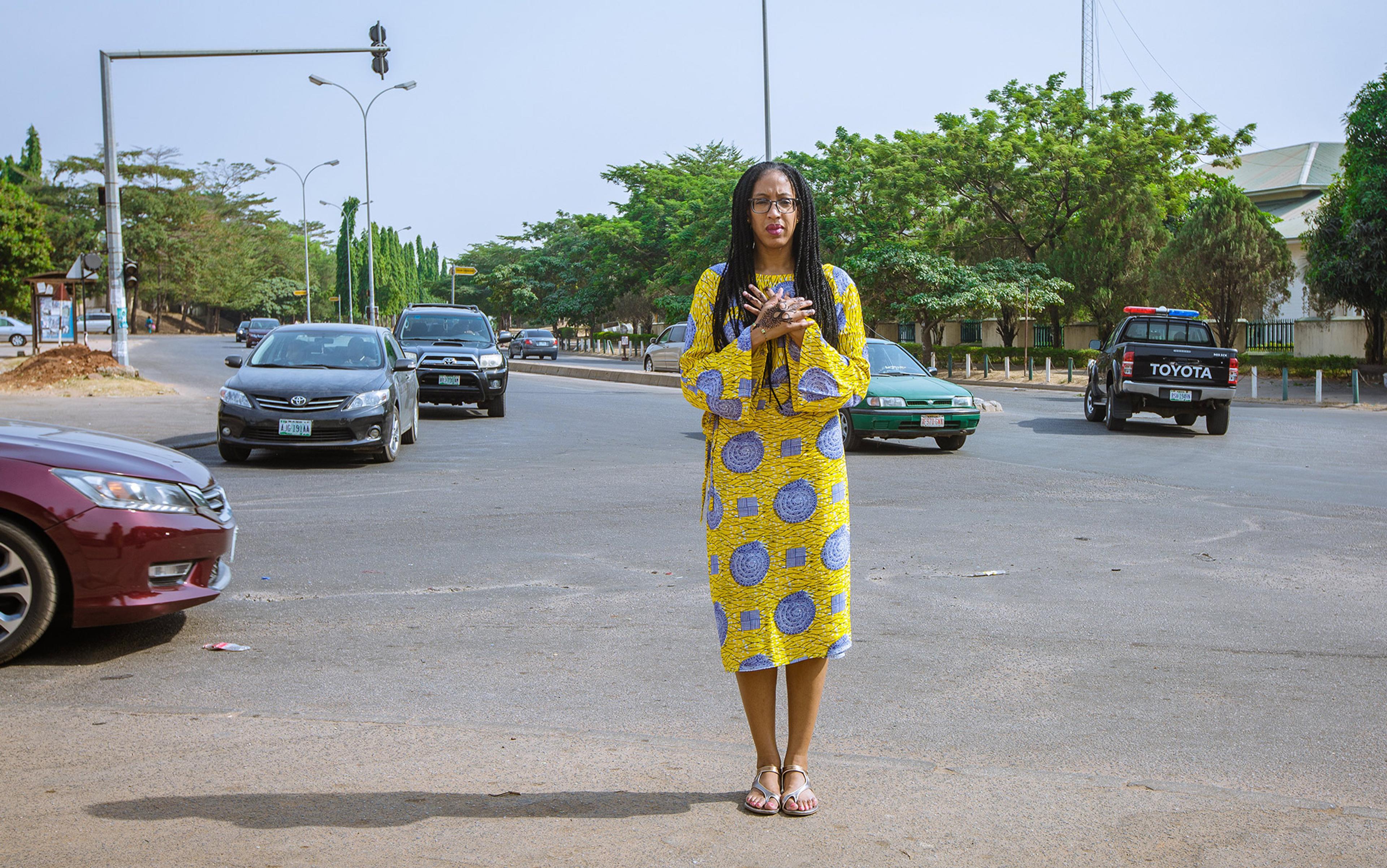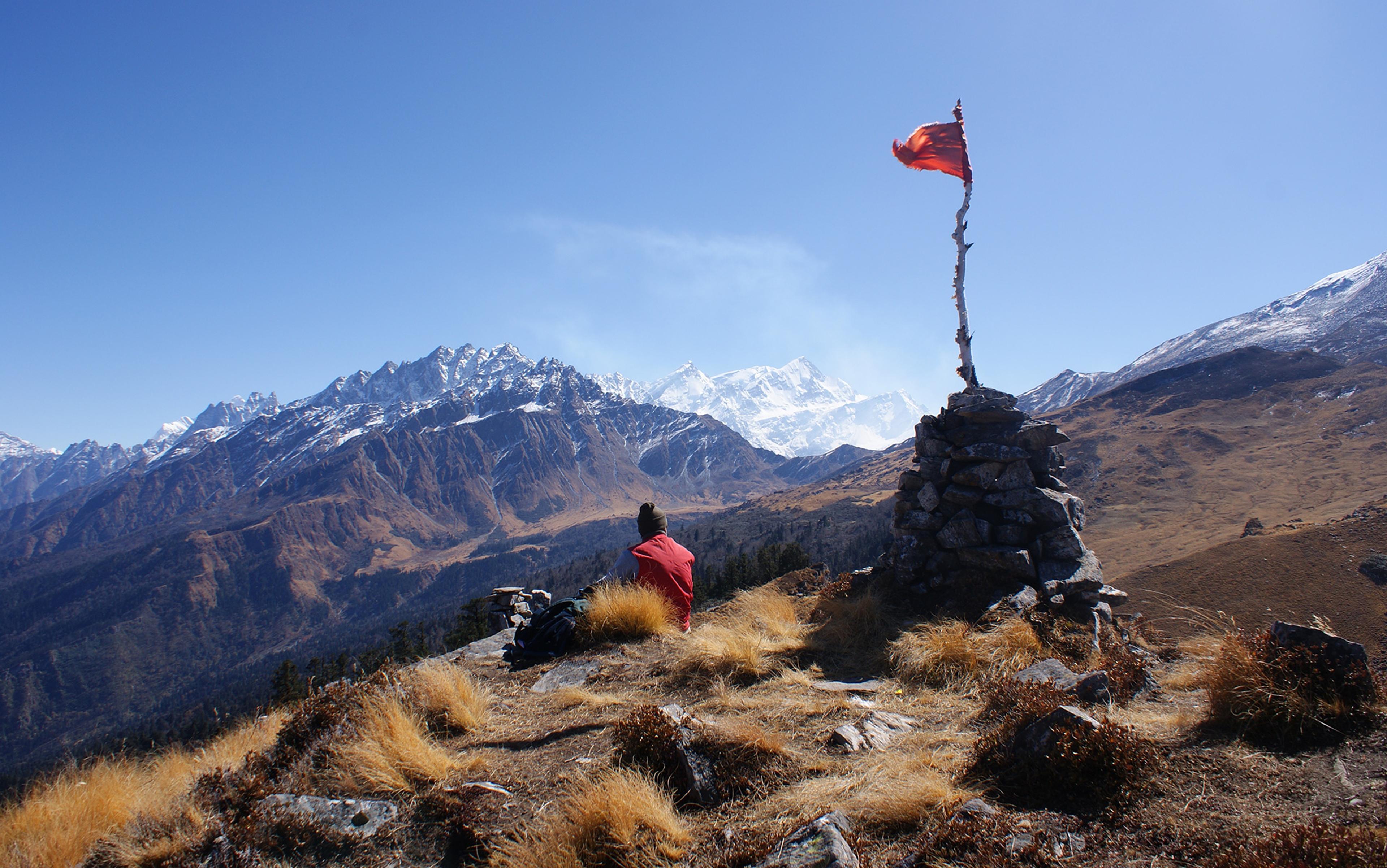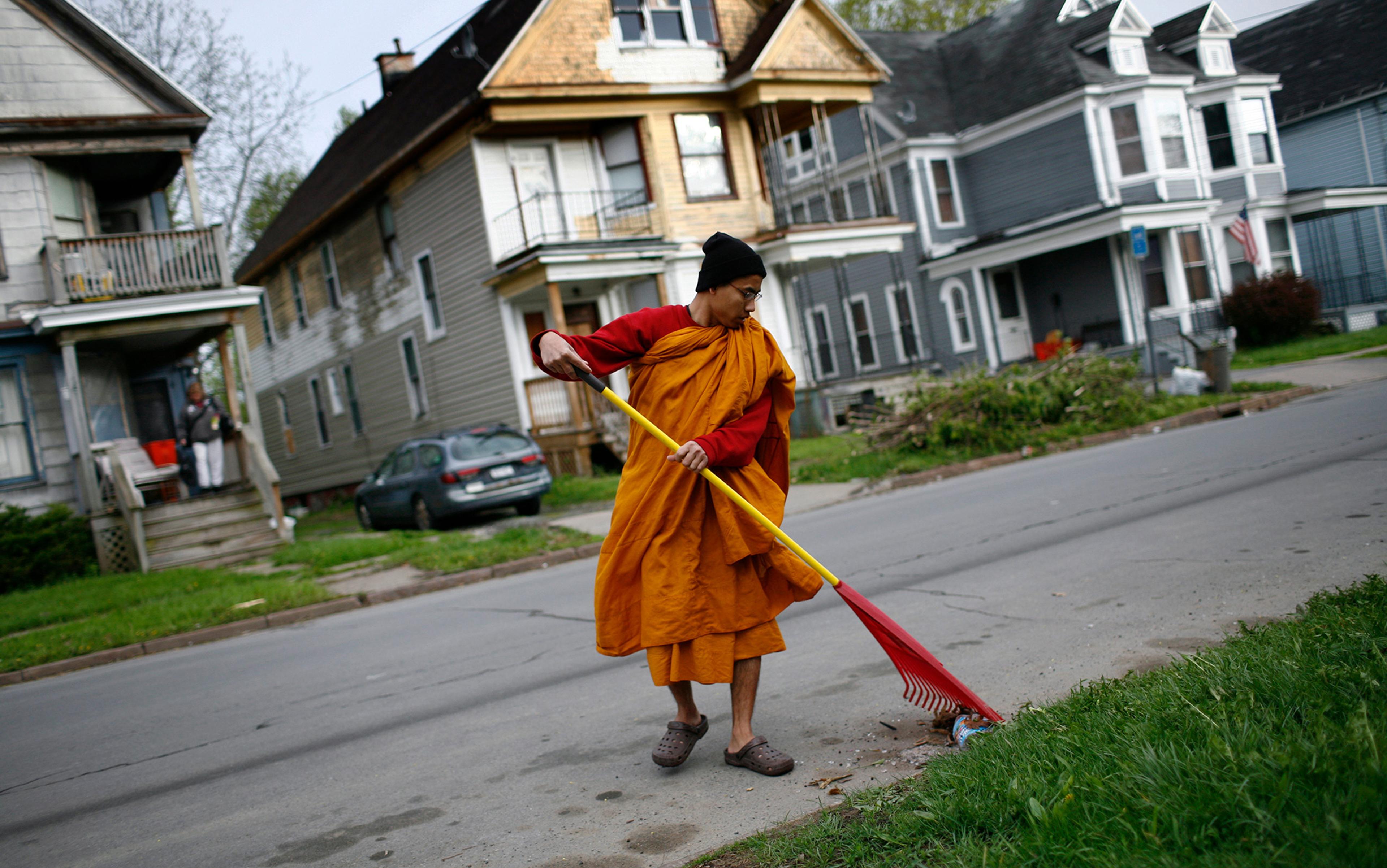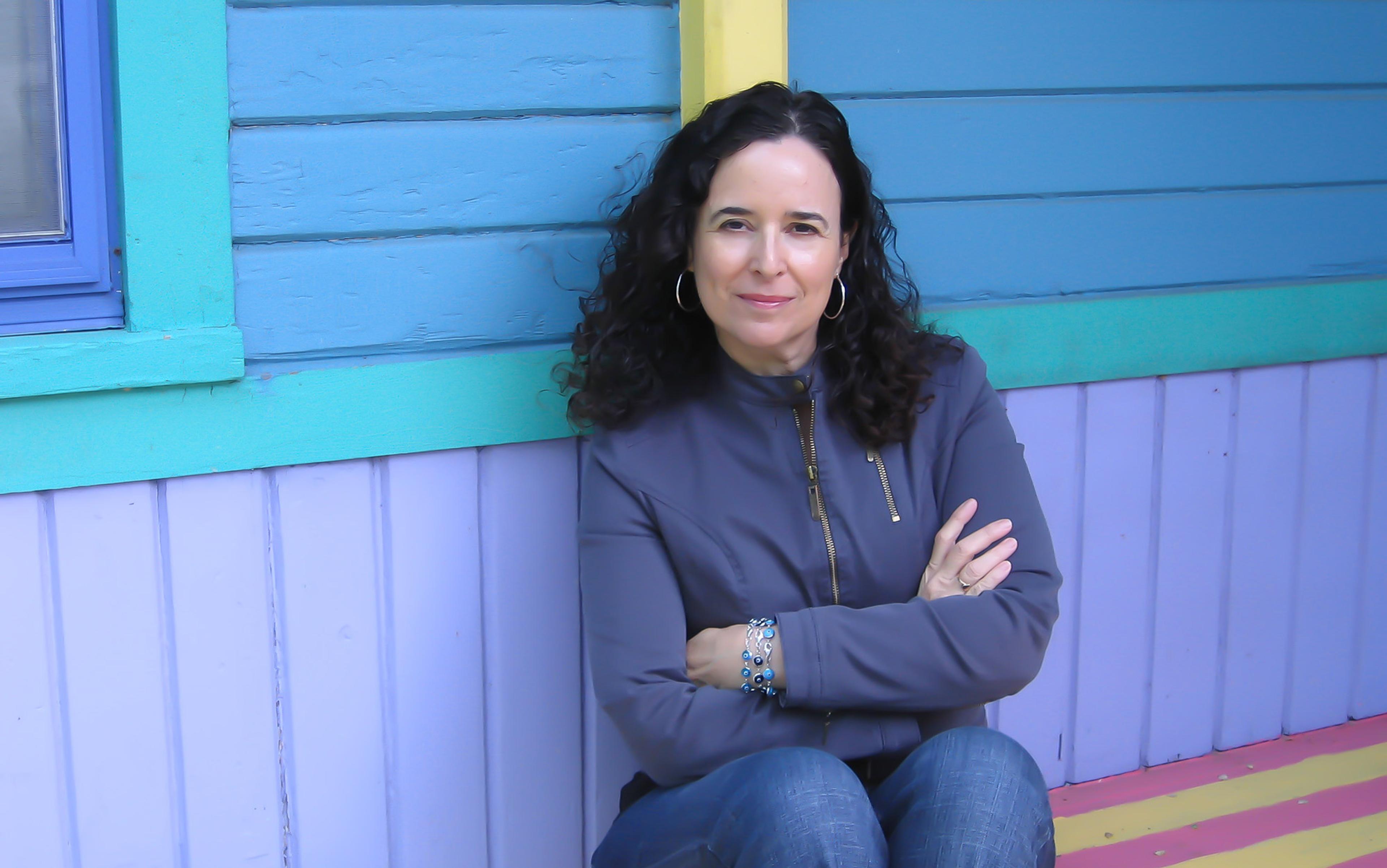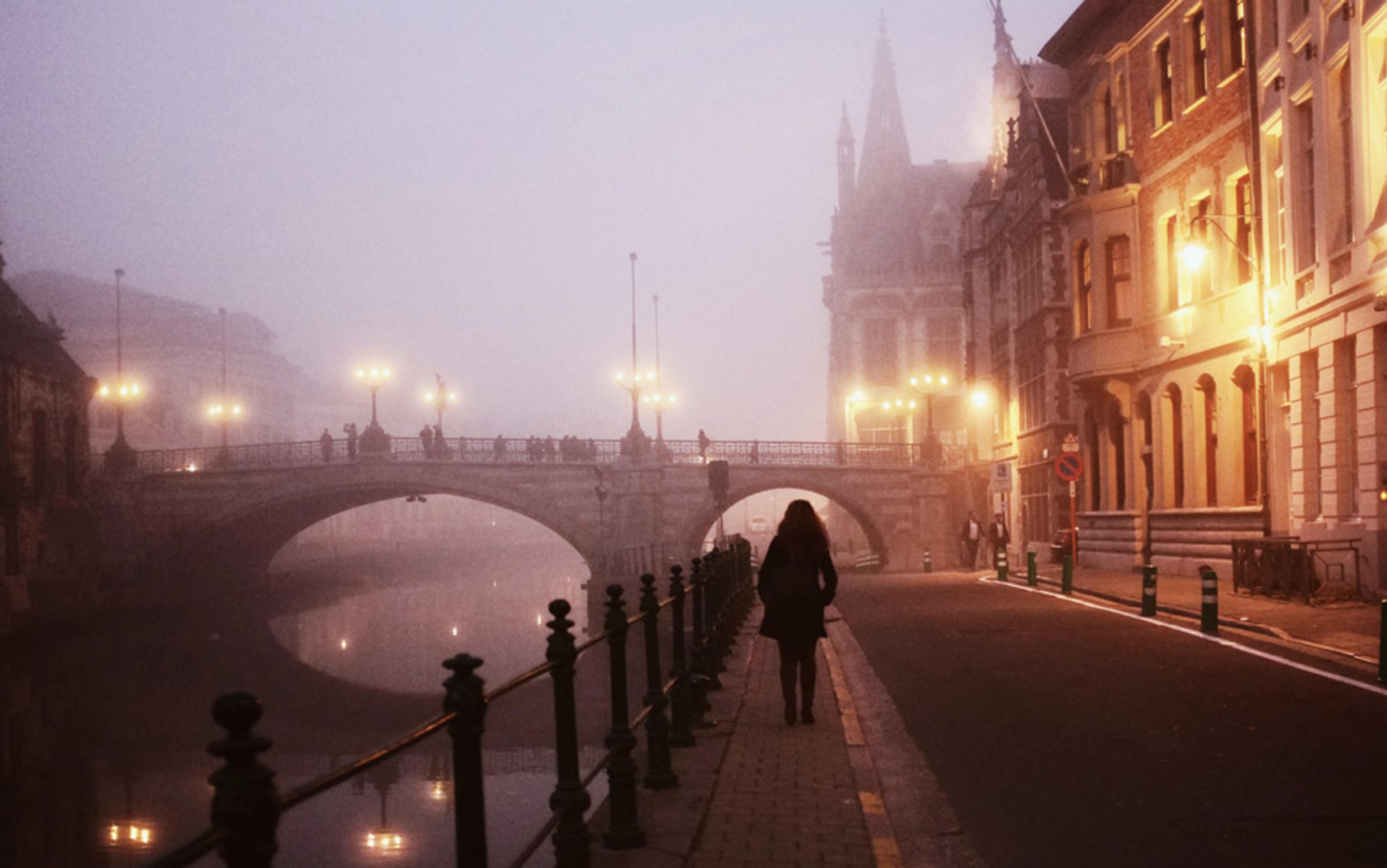For many recent immigrants, the telephone line remains the most vital link to home. The phone offers a respite from isolation, but is also the harbinger of ominous news. After a while, the phone call from ‘back home’ is typically either about a death in the family or a request for money. Every immigrant dreads both calls. I left Ethiopia for the United States 11 years ago, and have not returned.
So, in 2008, when my younger brother, Aliyi, passed away, kicked in the abdomen trying to saddle a stray horse, and in 2011 when my paternal grandmother, Aayyo, died, the news came on the telephone. I was not able to nurse them in their sickness, not even able to say goodbye. My home, a remote farming village in southern Ethiopia, still has no telephone service. To speak on the phone, most of my family members have to travel to a nearby town and wait, sometimes for hours.
The most recent bad news came at 2:30pm on 5 May 2015. ‘Aaddo has passed away,’ a hysterical and mournful caller told me, using my deceased uncle’s nickname.
‘What befell him?’ I inquired, at a loss for words, as if the question mattered. I don’t remember much of the moments after the call, but, within hours, I was on a flight from Washington DC to Minnesota, where my friends and Aaddo’s relatives lived.
In Minnesota, about two dozen elders and members of the local Oromo community welcomed me. Those who knew my uncle cried hysterically. The one-bedroom apartment designated for the occasion was crowded and chaotic. In Oromo culture, you always visit a member of the community during bereavement whether you know the deceased or not. (The Oromo are one of the largest ethno-national groups in Ethiopia and east Africa).
‘We are all sojourners on this earth, waiting for our turn,’ the elders told me. In the heat of my grief, their words of wisdom felt cold and hollow. They shared stories of their losses. I was uncomforted, and they scolded me for not accepting God’s designs. ‘A maternal uncle is like a mother without a breast,’ goes an Oromo saying. To me, Aaddo was more. Among the first to graduate from high school and college in the area, Aaddo showed me a path out of the thick forest and formidable mountains, the forbidding valleys and gorges that bounded my village, and my imagination. Later, he became a friend and my mentor.
The first night in Minnesota was sleepless. I thought about the day I left Ethiopia and the dreams I shared with my uncle. They were his dreams, really, dreams of leaving the world a better, more just and equal place, but they became mine too. Returning to Ethiopia meant a certain threat to my life. Mostly, I thought about the limitations of this predicament. I wanted to properly mourn my uncle, to attend the wake, to see his body before burial. But as a dissident journalist, I cannot simply get on the plane for Ethiopia, as most immigrants in that situation would do.
My inability to travel to Ethiopia magnified my sense of loss – of both Aaddo and my homeland. In ‘Mourning and Melancholia’ (1917), Sigmund Freud writes: ‘Mourning is regularly the reaction to the loss of a loved person, or to the loss of some abstraction which has taken the place of one, such as one’s country, liberty, an ideal, and so on.’ In this context, Aaddo’s sudden death brought forth my hitherto suppressed loss of home and the freedoms that I gained and lost, including the freedom of movement within the US mainland, or what the novelist Jamaica Kincaid calls the loss of ‘places in which something good, something you cannot forget, happened to you’ – my village. True, I have gained some important freedoms by coming to the US, including the freedom to speak and write freely. The cost has been the possibility, even for a moment, of wholeness: home, family, friends – the ability to mourn the death of a loved one surrounded by those who also loved him, or me.
The last day I was ‘home’ was on 20 December 2002. My mind raced, preoccupied with an imminent trip to a faraway place known to my folks only as Amerikani. I made one last tour of my hilltop village, starting at the mud hut where I was born, and looking down at the thick rainforest that stretched for miles.
The calm and serenity struck me, perhaps for the very first time. The eerie quietness, broken only by sounds of birds and an occasional gust of wind that rustled the trees, soothed my anxiousness. I had herded cattle here once. Climbed trees, hunted antelopes, and gathered wild honey. Swinging on tree branches high above the ground, its mud baked by the tropical sun. Running wild in the torrential rains with abandon and without care. I thought of all these things as I tried to absorb as much of the place into memory as I could before leaving.
I already had a visa to the US, but for days I had been nervous, sad and unsure. I had never flown on a plane before. Would I see any of my relatives again? Would I someday return and find this tranquil place undisturbed?
I was anxious both about beginning a new life abroad and about its uncertainty. As family members said their final goodbyes, it dawned on me that I would soon be alone in a foreign land, separated by an ocean from everything and everyone I knew and cared about. ‘This could be our last goodbye,’ Aayyo said, expressing her foreboding. She was right.
Would I see my friends again? What if I was detained at the airport and became one of the disappeared?
A few days later, my college classmates organised a secret farewell party at a secluded park on the outskirts of Addis Ababa, Ethiopia’s sprawling capital. They asked me to not forget them and to remember our fight for justice. I had been in and out of detention for participating in anti-government student protests. At the height of yet another student uprising, I wasn’t sure if I could just fly off. Would I see my friends again? What if I was detained at the airport and became one of the disappeared?
With two suitcases, a new suit, a contact in Minnesota, and some misgivings, I left Ethiopia that Tuesday evening at once sad and hopeful. The US promised education and the ability to represent the muzzled voices of millions I had left behind. I started out at an adult language-learning centre, went on to a community college, then a four-year university degree, and finally graduate studies at an Ivy League school. I paid for parts of my education by working or using a combination of credit cards and student loans. In my spare time, I wrote about human rights abuses in Ethiopia, my people’s quest for justice, and took part in youth and community organising.
People respond to loss differently, but mourning a far-away loved one must be a see-saw of remembering and forgetting. In a long‑distance relationship the only thing constant is the lack of physical contact between loved ones. Technology has eliminated so many barriers to communication in many parts of the world. But in a long‑distance loss, technology exacerbates rather than lessens the pain.
Before my uncle’s funeral, I kept calling home. Mourning from a distance, replaying in my head our last phone call, which came about two months before his death, and his parting words 11 years earlier when I left Ethiopia. Every time I called home, I could hear the wailing of inconsolable family members. My brother tried to comfort me, noting that we are all mourning. I wanted to scream: they were; I was 7,800 miles away. They saw Aaddo’s body, washed and clothed it as per the dictates of his Islamic faith. They could hug his kids, cry and console each other – together. I sat in Saint Paul, Minnesota, surrounded by acquaintances and strangers, who knew my uncle only by name, if that.
Aaddo was more than an uncle. A world where he no longer lived felt smaller, less kind, and crueller
I was also angry at my brother’s words of condolence. For 11 years, he had lived with my uncle while I had been cut off from them all. I felt sad and empty. The occasional phone calls, which were often too short, and few and far between, in part thanks to the ceaseless work and scurrying‑about of the American way of life, did not allow for long talks about our lives. Each speaker on the opposite end of the wire was often cautious lest the other feel disaffected by the pent‑up agony of separation, which is punctuated by distance and time.
Aaddo was more than an uncle. A world where he no longer lived felt smaller, less kind, and crueller. An eternal optimist, he always believed the best days are to come. During our intermittent phone calls, he never allowed me to complain about the emotional toll of a diasporic life. He preached excellence and valued family above all else. A renaissance man from outside and a romantic at heart, it is because of his example that I have dedicated my life to reporting on politics and society in Ethiopia. Everything I had achieved in life, he had a big part in, if not through some kind of direct contributions but through his endless inspiration and valuable life lessons, often communicated through his own lived experiences, not words. This is what made the loss most painful, not to mention my inability to nurse him; share his wisdom; engage him in sweet conversations and read his writings; feel his last breath and hear his dying wishes.
The Oromo elders in Minnesota pointed out to me that Aaddo’s sudden departure reminds us of the dailiness of death. Even in mourning, it’s a reminder to live out his legacy and to take care of loved ones who are still alive. A humbling reflection on how we let our lives drift far from our ideals.
The initial shock was followed by haunting dreams, for days uninterrupted. Like a ship unmoored from its anchor and pulled into a raging sea, I lost my centre. At times, I felt as though my mind would slip into a vast region of void and then return to itself in brief moments of delirium. My entire being was in turmoil. I don’t regret leaving Ethiopia. I am privileged to have the physical protections and the opportunities the US offered me. My old classmates in Ethiopia either died in prison or wasted years in refugee camps across east Africa. It would have been the same for me. My blessings are many, but this realisation does not take away from my sense of loss and desire to belong, a feeling that the late Palestinian-American scholar Edward Said called ‘the crippling sorrow of estrangement’.
Five months after my uncle’s death, as the shock began to subside, I still couldn’t keep away the anxiety about more bad news from home. In the weeks after he died, I dreamt almost daily about one or another form of family tragedy. Other times, I saw Aaddo in my dreams and woke up shaken and scared. The possibilities of loss have at times possessed me. This is what exile does to you – a persistent longing for order and stability. Said defines exile as ‘life led outside habitual order. It is nomadic, decentred, contrapuntal; but no sooner does one get accustomed to it than its unsettling force erupts anew.’ The exilic life can be nostalgic, disorienting and demoralising.
An exile is always yearning for a lost paradise, a home and familiar belonging. As Said aptly observed: ‘Exile… is the unhealable rift forced between a human being and a native place, between the self and its true home.’ As if speaking to my own predicament, Said prophesied that the exile’s ‘essential sadness can never be surmounted’. Said’s Palestine and Ethiopia couldn’t be more different. He wrote about exile from a place that many Westerners knew existed, but did not want to acknowledge. As an Oromo, my experience bears some similarities to the plight of Palestinians – like the Palestinians, the Oromo have been exiled in and from their home. As with the Palestinians to the Israelis, the Oromos’ presence presents the Ethiopian state with an unbearable reminder of its structural oppression.
I am in exile because I could not lead a dignified life in my own country
But in the West, Ethiopia is not widely known as a place from which people have been exiled. The Oromo are the single largest nationality in Ethiopia, constituting at least 40 per cent of Ethiopia’s 96 million people, but they have been relegated to the peripheries of Ethiopian polity for the past century. As the philosopher Martha C Nussbaum observed, for Said, exile is a state of mind, a moral condition, which one can experience even at home, as a protest against traditional orthodoxies or any notions of cultural or national identity politics. Exile for me is a state of being, which cannot in any way be disentangled from my national identity, not as an ideological endeavour but due to my acute sense of statelessness. I am in exile because I could not lead a dignified life in my own country solely for being an outspoken Oromo, which the Ethiopian state considers a crime.
Even in the concrete jungle that is New York City, this persistent struggle with loss, the existential search for closure and connection has led me to estrangement. In a sense, mourning becomes a state of being. It is typically understood as the first step in the healing process. But, for an exile, the powerlessness wrought by feelings of being uprooted and the lack of images and a familial support system makes mourning a start-stop process.
Freud suggests that mourning involves ‘working through’ the loss of a loved one over a period of time, through a natural process that includes remembering, forgetting, grieving, reattachment… and eventually moving on or healing. In writing this essay about being in exile, rather than matters that made me an exile such as politics and human rights, I am trying to work through the loss of my uncle. But arriving at the Freudian stage of healing entails much more than moving on: it means winning the freedoms I gained and lost here in the US, and returning home, and reunion with my family. It also means visiting my uncle’s grave and reliving our shared bond in a familiar place – at home – where we created so many memories, together. I want to be able to sit at the same restaurant where we once ate and try to reimagine the details of our conversation. I want to visit his children and pay my respects – hold them and cry – to finish my incomplete mourning, and finally begin the process of healing.
But, given my travel restrictions, all of this seems like a distant dream. And a haunting resignation that I might never be able to do any of these things. It creates a sense of powerlessness, dislocation and a painful layer of loss, similar to what Freud calls melancholia: a deep and pathological state of prolonged mourning. I still can’t force myself to call Aaddo’s wife or his children. A cousin in Addis Ababa tells me: ‘Our life will never be the same without him.’
What an unfairness this enviable cousin of mine utters! He buried his uncle with his own hands; threw dirt at the burial shroud; mourned, as one ought to mourn – with family, friends, and relatives. And here I am, 7,800 miles away – stateless and trapped in my achievements and failed by my successes – unable to bury and properly mourn a dear uncle, my life’s anchor and source of inspiration. I try to process and imagine ‘our life’. I think about how ‘our’ lives were torn apart and forever altered the day I left Ethiopia. I can’t visit them. They can’t visit me. And there are those whom I will never see again. That’s the biggest tragedy of an exile’s life, or life in general.
This sorrowful lament is both a tribute to my uncle, and an effort to bury some memory, or to emerge from a vicious cycle of mourning – for the people, the home and freedoms lost.

